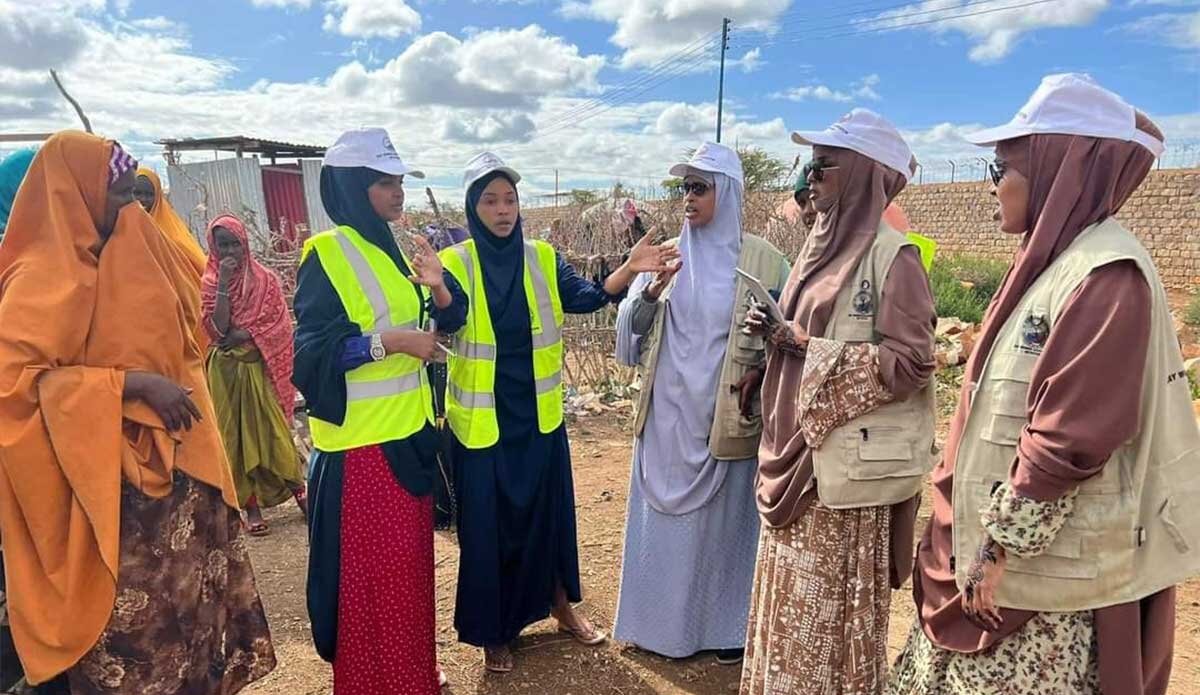
SOCOTU Condemns Workplace Harassment and Discrimination Against Women in Somalia

Sexual Harassment and Exploitation:
There is a growing concern among Somali women who, on a daily basis, face sexual harassment in the workplace. Many women have reported that it is nearly impossible to secure a job in government offices without submitting to demands for sexual favors from ministers, directors-general, or other senior officials. This toxic environment of coercion and exploitation is unacceptable and must be addressed urgently.
Gender Pay Gap and Employment Discrimination:
In addition to sexual harassment, women in Somalia continue to face significant disparities in pay and employment opportunities. Despite having the same qualifications and experience, women are often paid less than their male counterparts and are frequently passed over for promotions and leadership positions. This gender pay gap is a stark reminder of the deep- rooted inequality that persists in Somali workplaces.
SOCOTU’s Call to Action
SOCOTU calls on the Somali government, private sector employers, and all relevant stakeholders to take immediate action to end these discriminatory practices.
1. Strict Enforcement of Anti-Harassment Laws: The government must enforce existing laws against sexual harassment in the workplace and ensure that perpetrators are held accountable. We also call for the introduction of stronger legal protections for women in the workplace.
2. Equal Pay for Equal Work: Employers must commit to paying women and men equally for the same work. SOCOTU urges the government to implement policies that promote transparency in wage structures and penalize employers who perpetuate the gender pay gap.
3. Safe Reporting Mechanisms: Establish safe and confidential reporting mechanisms for women who experience harassment or discrimination at work. These mechanisms must ensure that complaints are taken seriously and that victims are protected from retaliation.
4. Training and Awareness Programs: SOCOTU recommends the implementation of training programs for employers and employees to raise awareness about gender equality, workplace harassment, and the rights of women workers. SOCOTU’s Commitment
SOCOTU remains committed to fighting for the rights of Somali women in the workforce. We will continue to advocate for policies that promote gender equality, protect women from harassment and discrimination, and ensure that all workers are treated with dignity and respect.
The time to act is now. Somali women deserve to work in environments where they are valued, respected, and free from exploitation. SOCOTU will not rest until these basic rights are secured for every woman in Somalia.
--
SOCOTU, the Somali Congress of Trade Unions, stands as the foremost labor organization in Somalia, uniting numerous national unions, state and federations of labor, and community-based labor councils. It effectively represents over 100 thousand workers spread across the nation.
Leave a comment
- Popular
- Rated
- Commented
04/11/2021 - 11:05:02
28/05/2024 - 15:44:10
02/12/2021 - 11:34:53
01/03/2021 - 09:00:37
Opinions
18/05/2025 - 16:26:37
15/05/2025 - 20:16:04
Politics
05/06/2025 - 13:42:50
Terror Watch
07/06/2025 - 21:36:45
Press Releases
05/06/2025 - 12:21:21
02/06/2025 - 21:29:33
 0
0 




































SOCOTU Condemns Workplace Harassment and Discrimination Against Women in Somalia
MOGADISHU (PRESS RELEASE) The Somali Congress of Trade Unions (SOCOTU) is deeply concerned about the widespread and harmful practices occurring in both government and private offices towards Somali women, particularly those seeking employment and tho